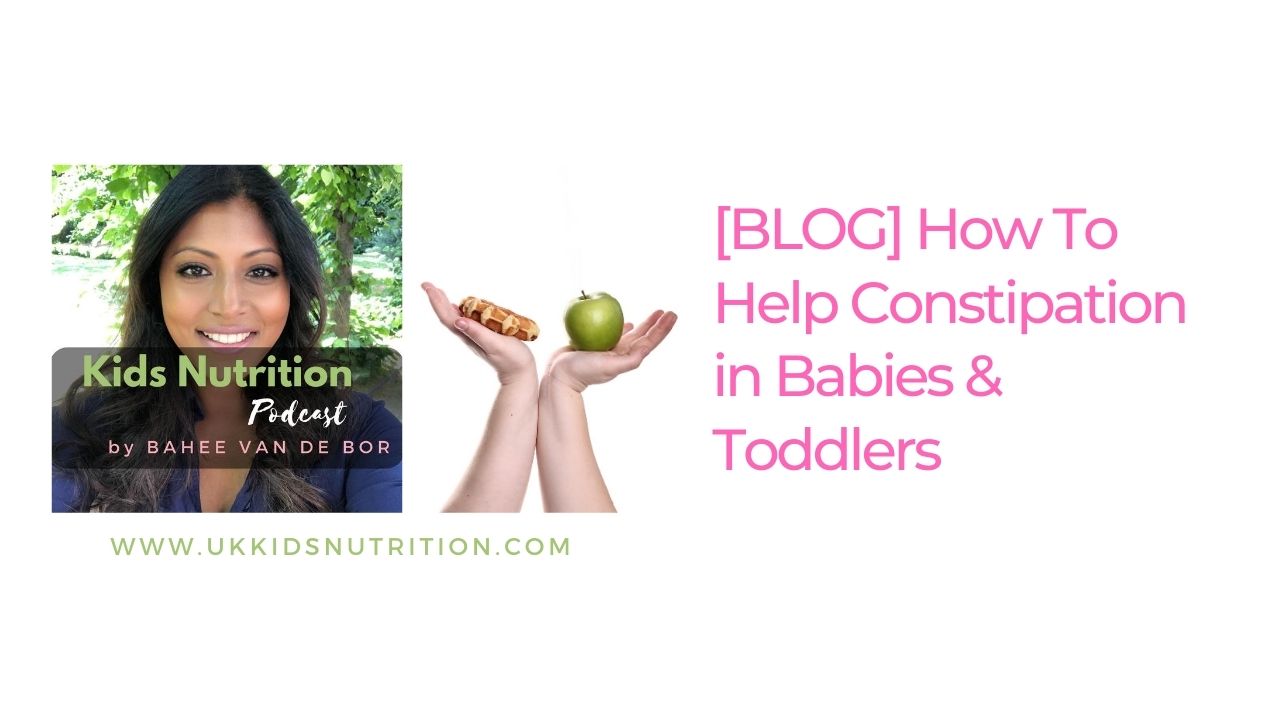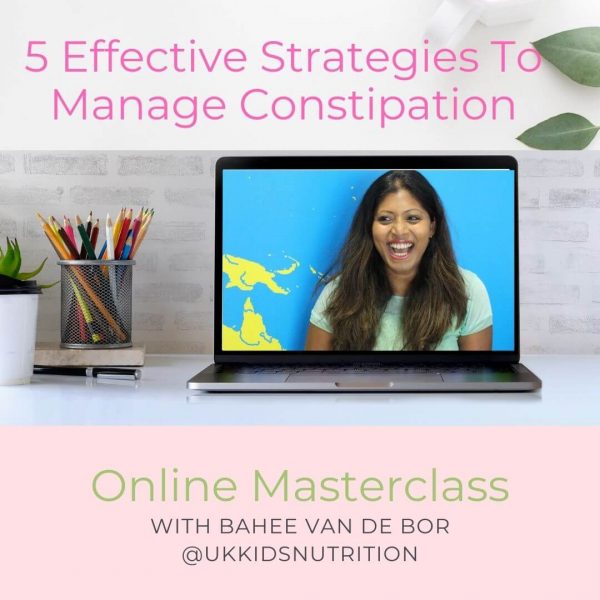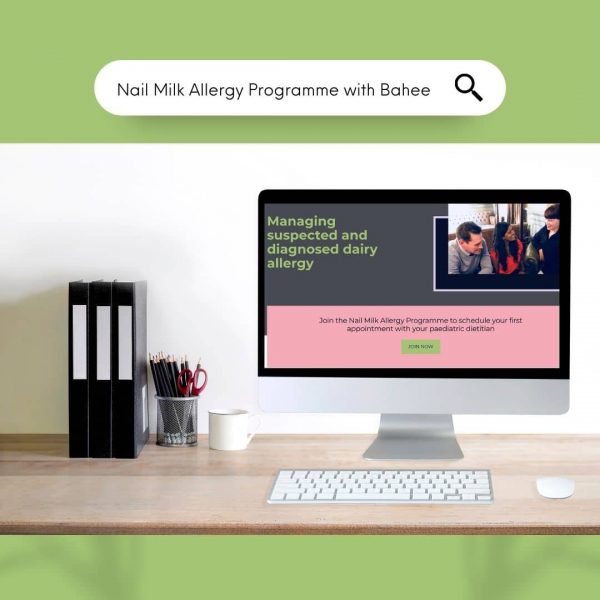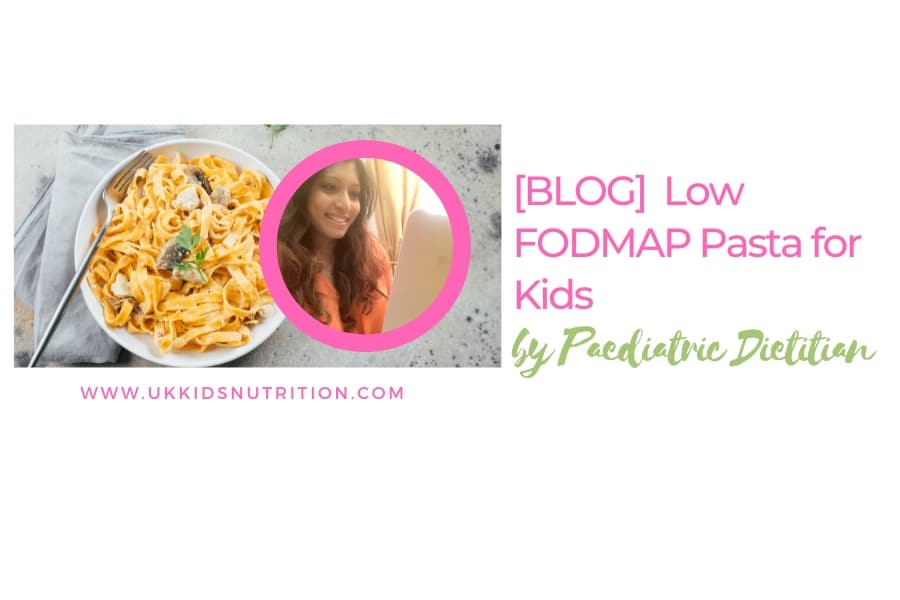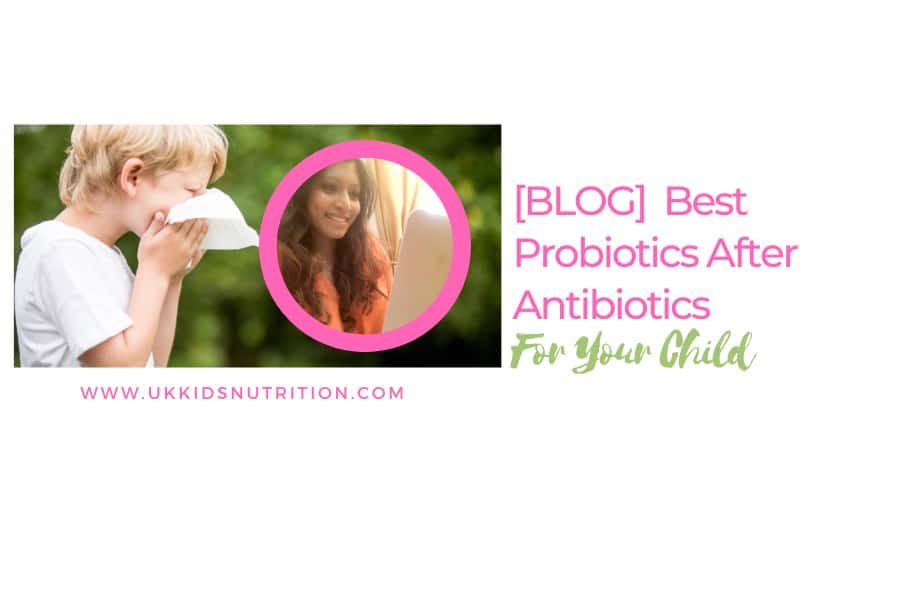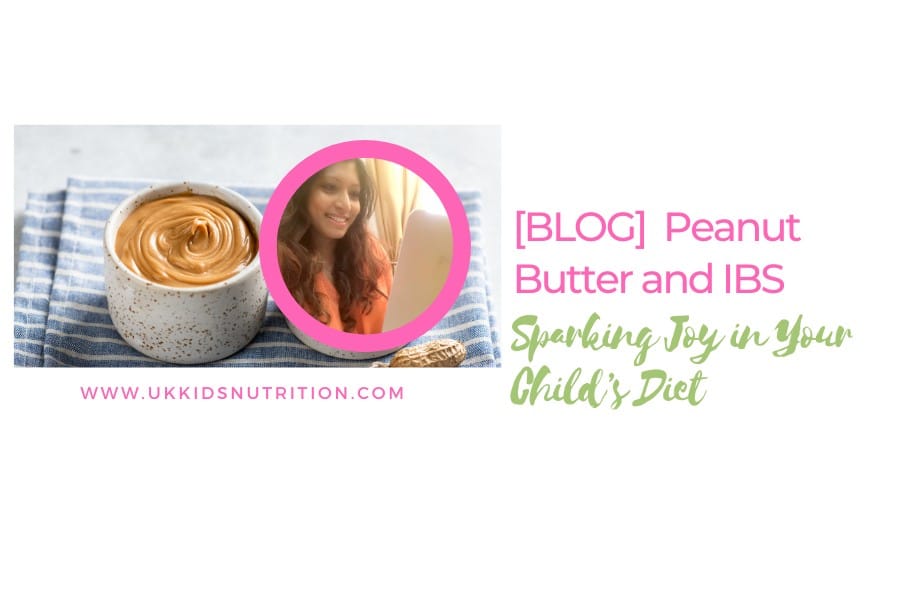Ready to get answers in the poo department for your baby or toddler with constipation? You’ve probably tried various herbal and home remedies but quickly became disappointed that they didn’t work. If you are open to getting to the heart of the problem, then look no further than these useful tips on how to help constipation in babies and toddlers plus the best foods that help babies with constipation.
What is constipation in babies?
If your baby’s constipation or lack of regular poo is worrying you, then the first step is to identify if this is a genuine problem in the first place. Constipation in babies is any reduction in your baby’s usual stool pattern. If you need help identifying whether your baby has constipation or not, keep reading to find out. There are also three steps you can take to manage constipation if you think your baby or toddler is constipated.
Signs of constipation in babies
You may be concerned because your baby appears to be in pain when passing stools. Your baby’s poo may also be hard or large and difficult to pass. Plus, your baby may also be straining during a poo.
What causes constipation in babies?
To answer this question, let’s chat about baby poo first. Baby poo can vary from one baby to another. Constipation in babies really can vary depending on how your baby is feeding. Are they drinking breast milk or formula? And how much are they feeding?
So, depending on the volume and whether your baby has just started weaning onto solid food, these factors can influence your baby’s stool pattern.
Breastfed babies, for example, are more likely to pass soft, yellow stools that look creamy or with flecks of stringy bits in them.
Stools of formula-fed babies can also be yellow, but depending on the formula type, the colour can be green or brown. The consistency of the poo can vary from being soft, mushy, paste-like or appearing to be firm in texture.
So what causes constipation in babies? During the hot summer weather, you may need to focus on getting the balance right between fluids and solids.
Constipation in babies can occur if they are not drinking enough breast milk or formula. Just bear in mind, it is unusual for breastfed babies under six months of age to become constipated. Focus on increasing the frequency of breastfeeding offered if your baby is less than six months old.
Constipation in breastfed older babies could become a problem only if your baby is not getting enough total volume of fluids per 24 hours. Perhaps the temperature is hot, and they temporarily have high fluid losses through their skin.
So if your baby is over six months of age and you are worried that they are not getting enough fluids, give additional water in-between breast or formula feeds.
The amount of water that your baby needs will depend on their age and body weight. Babies are excellent at regulating their appetite. If they are passing lots of wet nappies, then it’s a good sign that they are getting enough fluids. In this instance, additional fluids may not necessarily relieve existing symptoms of constipation.
Too much water can also quell a baby’s appetite for their usual formula or breastmilk. For babies with regular wet nappies, offer their routine feeds first before water if you suspect that your baby is thirsty.
Constipation in weaning babies
If your baby has just started solid food, then try not to worry if you see a change in their stool pattern. Give babies a few weeks to adjust to eating solid food of complex and varying textures. It’s also completely normal if your baby’s poo changes to a dark brown colour and smells more like adult poo.
Constipation in breastfed babies
If your exclusively breastfed baby is constipated, all that you need to do is to increase the frequency of breastfeeds offered temporarily.
Remember, for babies who are under six months of age; it may be perfectly normal for them not to open their bowels for several days or longer. And when they do empty their bowels, if stools are soft and pass easily without any discomfort or straining; you don’t need to worry or do anything at all.
Baby constipation when starting solids
When babies first start solids, their stools may initially change colour and texture. Your baby’s poo may change colour to brown or green and become considerably firmer. The frequency of bowel movements may also vary. And as your baby gets older, it can be normal for them to open their bowels less frequently. If they persistently have difficulty opening their bowels, read the following tips to manage the constipation through diet.
How to relieve constipation in babies
If you suspect that your baby is constipated, use the following signs of constipation in babies and toddlers to help guide you:
- Stools are large and difficult to pass (click here for a visual guide on grading of stools).
- Your baby experiences pain when passing stools.
- Your baby is passing fewer than three bowel movements per week, and when they do a poo, your baby is in pain or discomfort.
Step 1
As discussed earlier, increase fluids.
- For babies under six months of age, consider increasing the number of breastfeeds or formula offered for a few days.
- For babies over six months of age, you can offer water as an additional drink in-between solids and their usual feeds.
- Avoid giving fruit juice as babies can develop a preference for the sweet flavour. In the short term, this may be okay if it helps relieve their constipation. If you start to rely on fruit juice regularly during the week to help your baby open their bowels, then it’s time to move onto step 2.
Step 2
- If your baby is over six months of age and you have started solids, instead of baby rice, start with vegetables and fruit. Savoury flavours from vegetables help your baby adjust to these flavours and provides an important source of fibre in their diet. Fibre from fruit and vegetables, oats, chia and flaxseeds can help soften their stools and increase how often your baby opens their bowels.
- As your baby progresses with their solids and meals, do offer a food providing fibre with every meal, e.g. fruit, vegetables, wholemeal/whole grain bread, pasta or cereals.
- Continue to offer water with meals.
Step 3
- If you have tried the above steps, then start a “poo” journal describing carefully how many times in the week your baby has opened their bowels and the consistency of the poo (soft, hard, paste-like and so on)
- Speak to your family doctor, health visitor or paediatric dietitian like myself to review your treatment options
- Your doctor may prescribe laxatives to help your child open their bowels. These are usually effective in managing constipation in both babies and toddlers. However, if you would like to explore how to optimise your baby or toddler’s persisting constipation through diet, then try adding or increasing the following foods in your child’s diet.
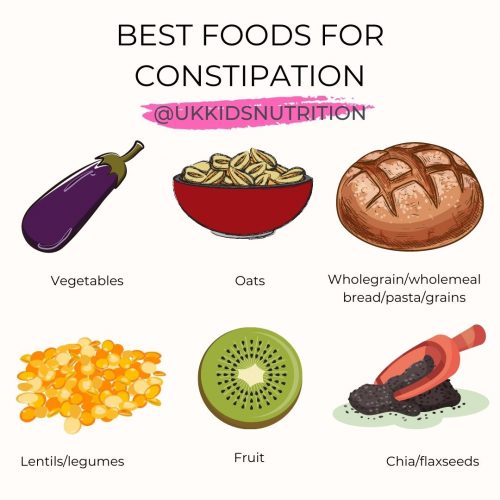
Fruit for weaning babies to manage constipation
These following fruits contain a type of fibre that is slowly digested. These fruits may be better tolerated in toddlers who experience bloating and abdominal distention.
However, all fruit is a useful source of fibre, vitamins and antioxidants.
- Avocado
- Berries
- Firm banana
- Grapes
- Kiwifruit
- Melon
- Oranges/clementines
- Rhubarb
- Skins of fruit – so don’t peel it!
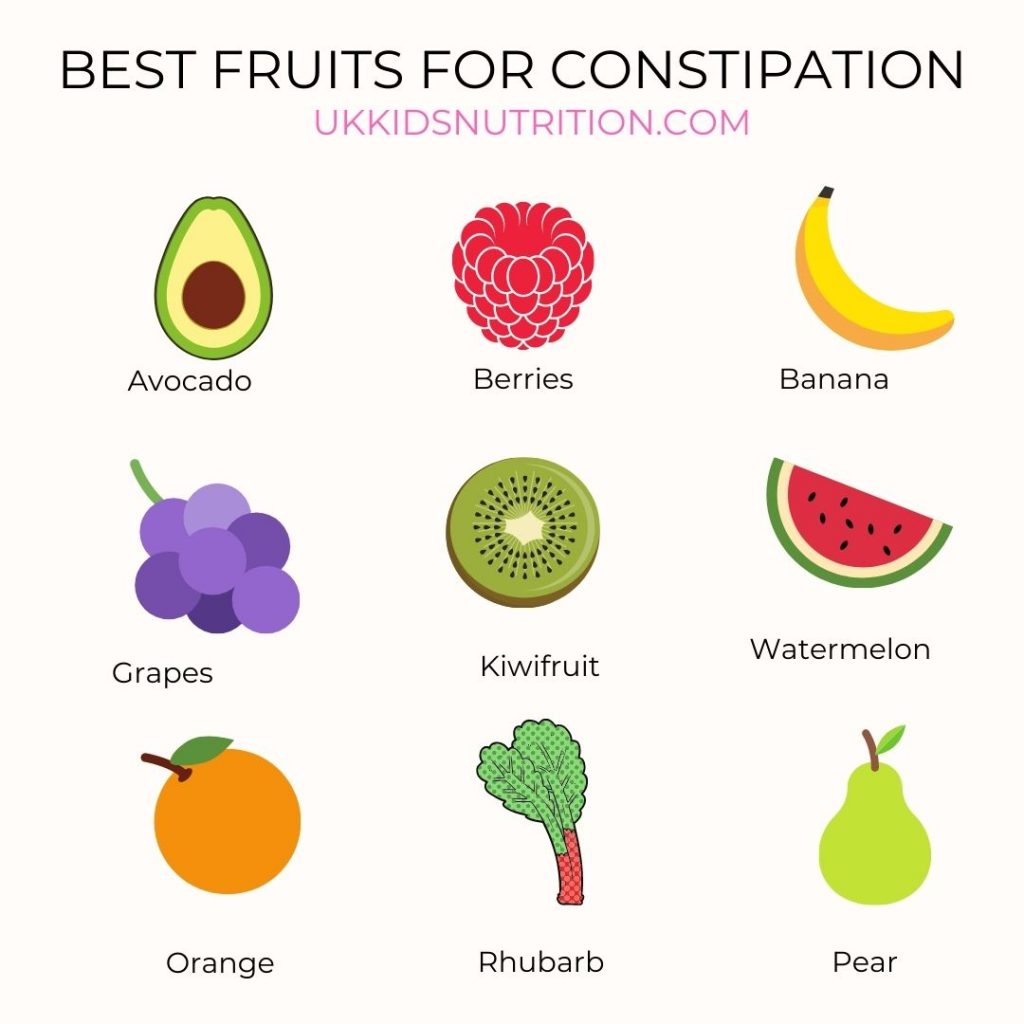
Best vegetables for babies with constipation
Vegetables are an excellent source of fibre and useful in the management of constipation in babies and toddlers. The fibres in some types of vegetables can also help with laxation and help your baby or toddler to poo more easily.
- Aubergine
- Broccoli
- Corn
- Green beans
- Spinach
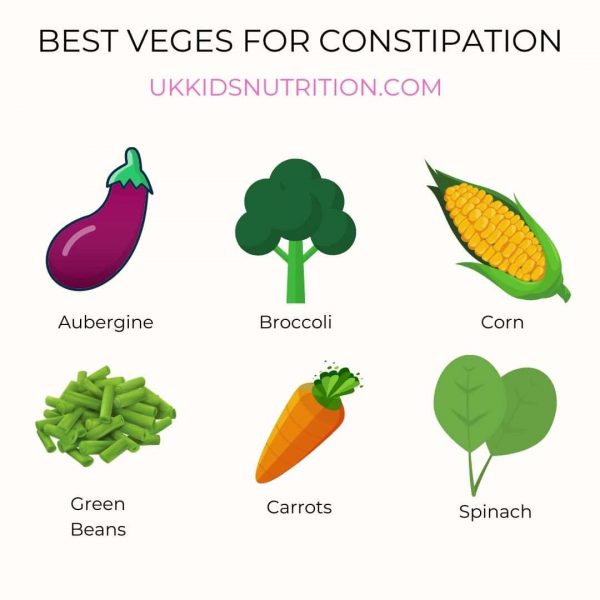
Grains
The fibre in oats and psyllium husk have gel forming properties and can help your child pass softer stools. If you need to increase the overall fibre intake for your child, switch from white to brown or wholemeal bread and pasta.
Constipation in babies: when to worry
You only need to worry if your baby or toddler has had a noticeable change in their bowel movements and they haven’t passed stools for over a week. Perhaps they have started to strain, are in discomfort, and your child’s poo now appears large, dry and difficult to pass. If you have also tried baby massage and this also doesn’t help, consider other causes for the constipation and seek medical advice.
Other causes of baby constipation
For babies and children with persisting constipation, they may have an underlying delayed cow’s milk protein allergy. Usually there are other symptoms, not just constipation so it’s important not to self-diagnose as it may be something else entirely. Some types of allergy testing known as IgG testing can be misleading, are not credible and should be avoided.
Speak to your family doctor or an experienced paediatric dietitian who can guide you. You can also enquire about my suspected food allergy programme here.
Some children can also suffer from IBS. Constipation is one of the tell-tale signs. I recently completed the Monash University training on FODMAPs for IBS and am qualified to support children in this area. A careful medical diagnosis is important first to rule out other serious underlying gastrointestinal conditions. If your child has not been assessed by a GP, paediatrician or paediatric gastroenterologist, do this first before exploring dietary treatments.
Recommended reading & podcast episode:
The bottom line
If your child has been suffering from long-term constipation, is irritable, has difficulty with toilet training or is soiling and is in discomfort, try the dietary manipulations outlined above.
If that doesn’t work, seek advice from your doctor or paediatrician to rule out any gastrointestinal conditions. A paediatric dietitian like me can then support you and recommend the right dietetic interventions.
Let Me Help
Would you like to meet a children’s dietitian who has successfully helped families solve their nutrition problems from around the world?
Whether you are worried about picky eating, food allergy or IBS for children, I’ll help you manage these with confidence.
For bookings and enquiries email me on [email protected] or book a free 15 minute call to discuss how I can help you.
